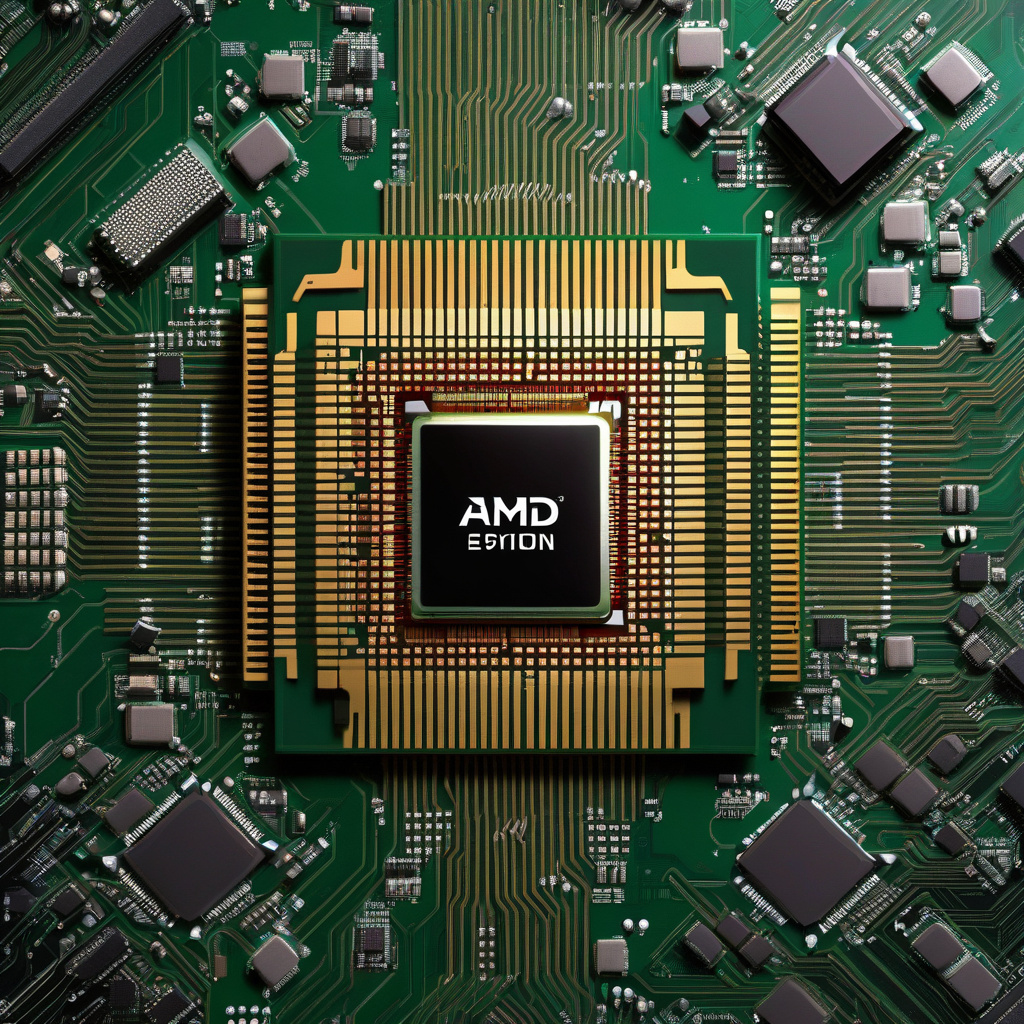Navigating the Custom Chip Trend: How AMD Can Overcome AI Challenges
In the ever-evolving landscape of technology, major players are constantly seeking ways to gain a competitive edge. One trend that has been gaining momentum in recent years is the development of custom AI chips. These specialized processors are designed to handle the unique demands of artificial intelligence workloads more efficiently than traditional CPUs or GPUs. As tech giants like Google, Apple, and Amazon invest heavily in custom chip development, semiconductor companies like AMD are facing new challenges to their market position.
AMD, known for its high-performance CPUs and GPUs, has made significant strides in the semiconductor industry in recent years. However, the rise of custom AI chips presents a new set of challenges for the company. As more tech firms opt for in-house chip design to power their AI initiatives, AMD’s traditional products may face increased competition and potentially lose market share.
One of the key advantages of custom AI chips is their ability to optimize performance for specific AI workloads. By tailoring the architecture and design of the chip to the unique requirements of artificial intelligence tasks, companies can achieve higher efficiency and performance compared to off-the-shelf solutions. This level of customization allows tech firms to push the boundaries of AI capabilities and gain a competitive advantage in the market.
For AMD, the growing popularity of custom AI chips could pose a threat to its market position in the data center and AI segments. As more companies develop their own custom solutions, AMD’s off-the-shelf products may struggle to compete on performance and efficiency metrics. To stay relevant in this changing landscape, AMD will need to find ways to differentiate its offerings and provide unique value to customers.
One potential strategy for AMD to overcome these AI challenges is to invest in research and development to create specialized AI accelerators that can compete with custom chips. By leveraging its expertise in CPU and GPU design, AMD could develop AI-centric processors that offer performance and efficiency on par with custom solutions. This approach would allow AMD to tap into the growing demand for AI hardware while maintaining its competitive edge in the market.
Another avenue for AMD to explore is partnerships and collaborations with tech firms developing custom AI chips. By working closely with these companies, AMD can gain insights into the unique requirements of AI workloads and tailor its products to better meet those needs. This collaborative approach could help AMD stay ahead of the curve and ensure that its offerings remain competitive in the evolving AI landscape.
In conclusion, the rise of custom AI chips presents both challenges and opportunities for AMD in the semiconductor market. While the trend towards in-house chip design by major tech firms may threaten AMD’s market position, there are avenues for the company to overcome these challenges and stay competitive. By investing in R&D, exploring partnerships, and developing specialized AI accelerators, AMD can navigate the custom chip trend and emerge stronger in the AI hardware market.
#AMD, #AI, #CustomChips, #Semiconductor, #TechTrends
